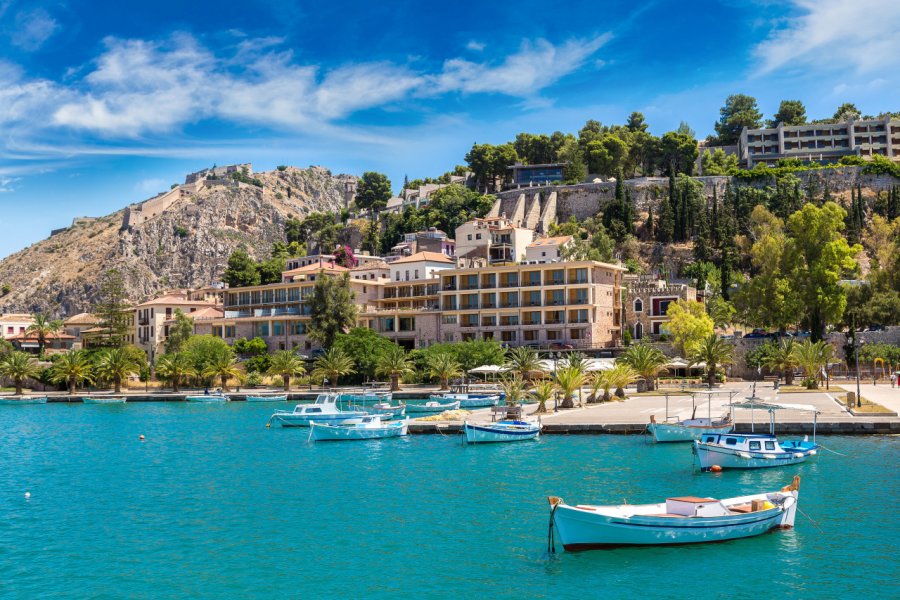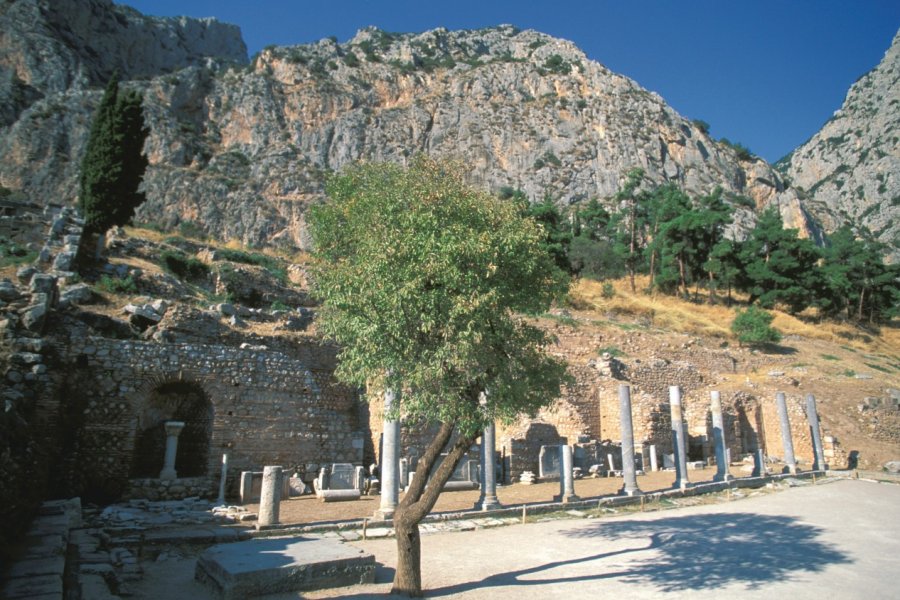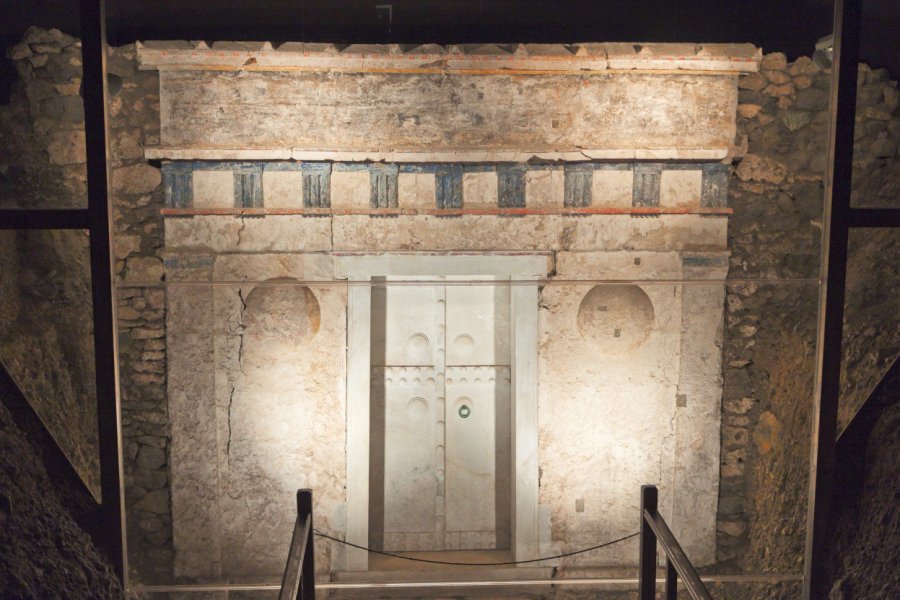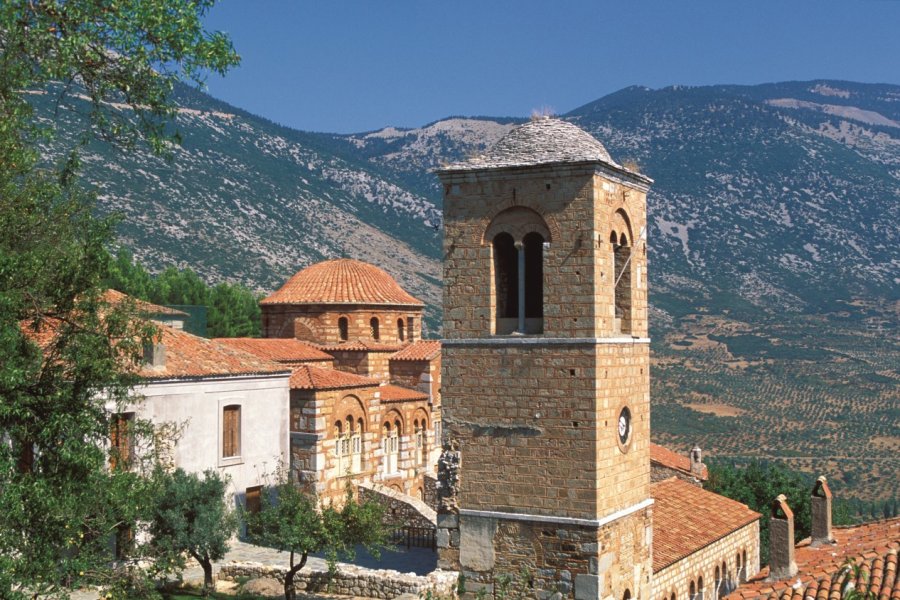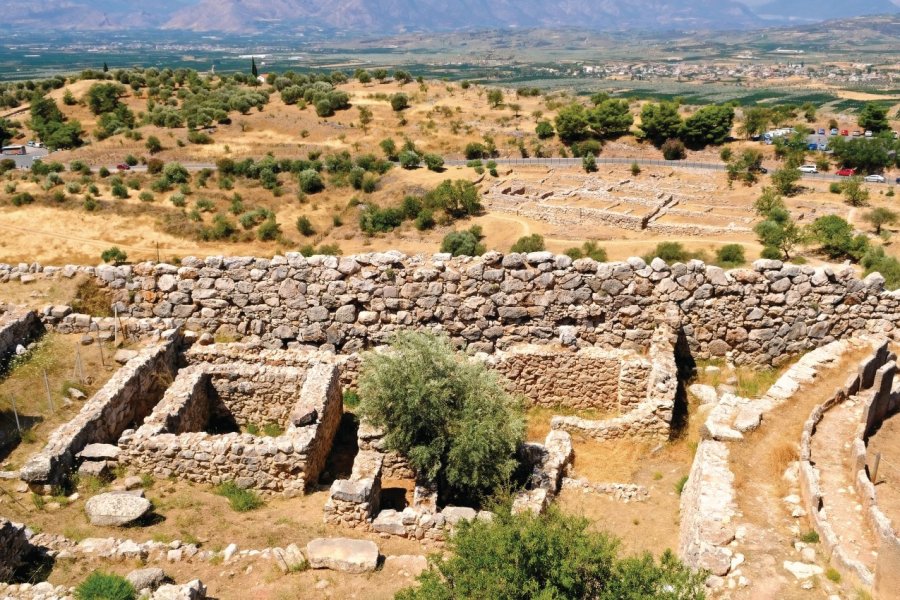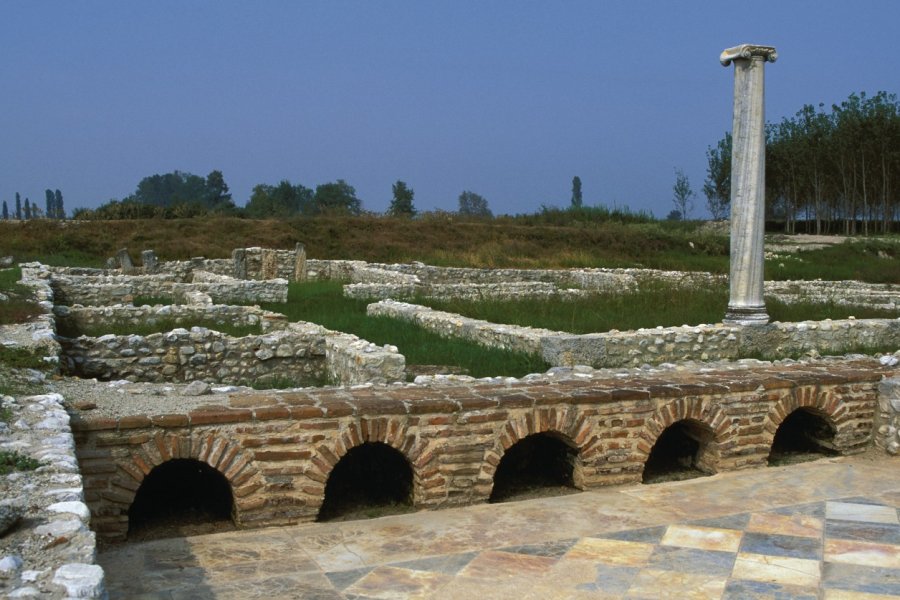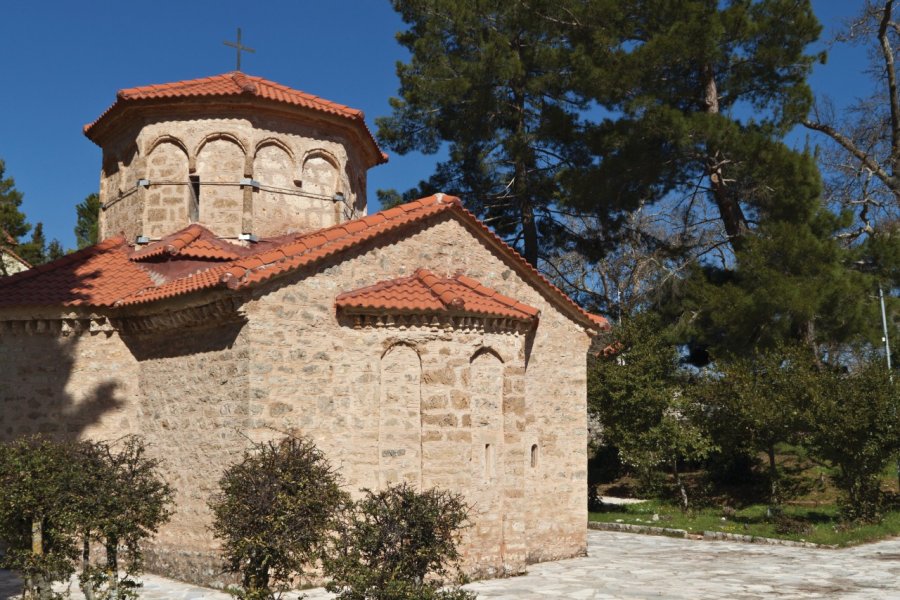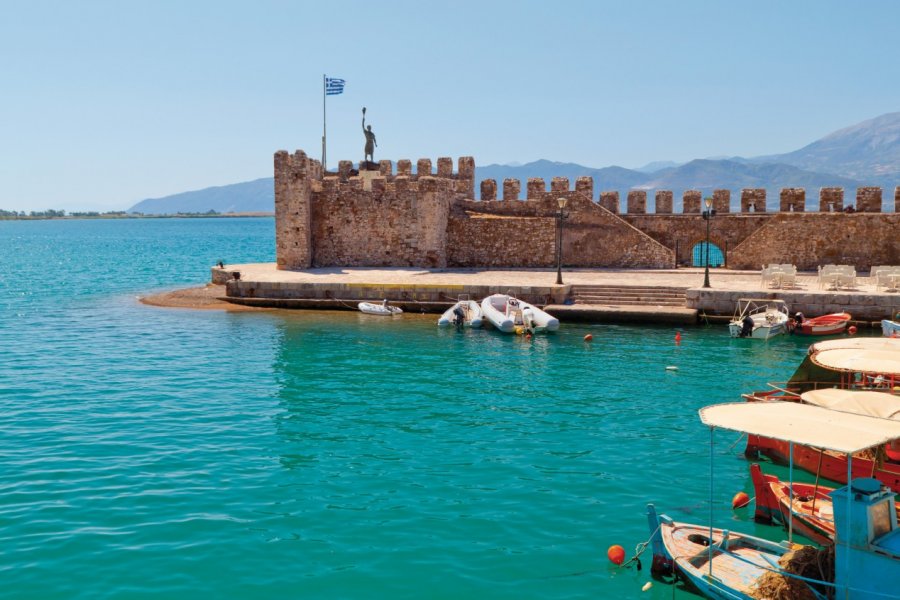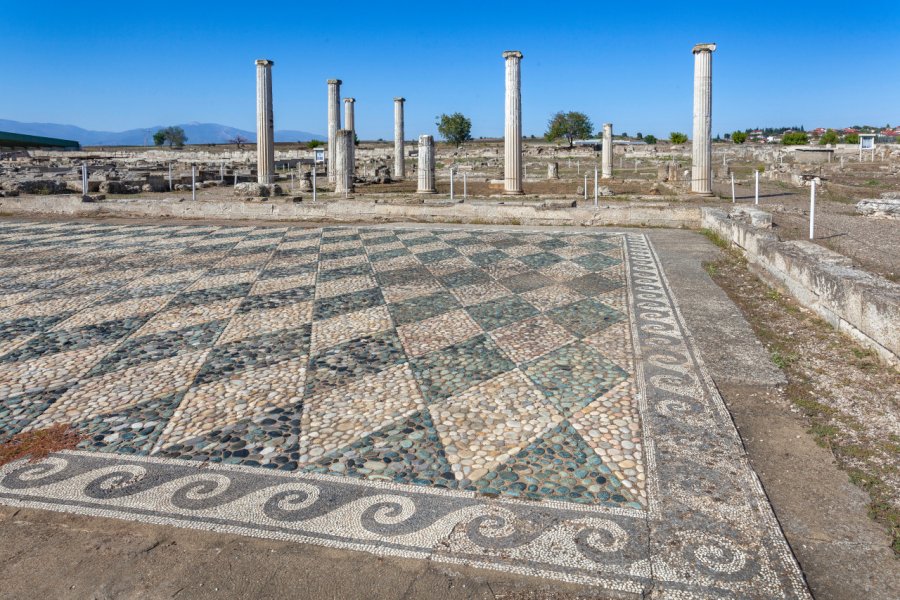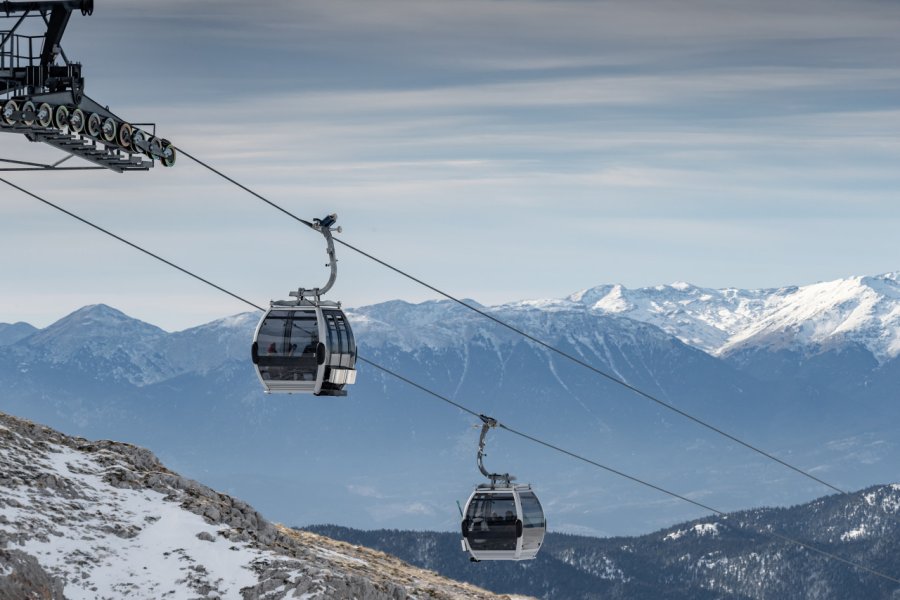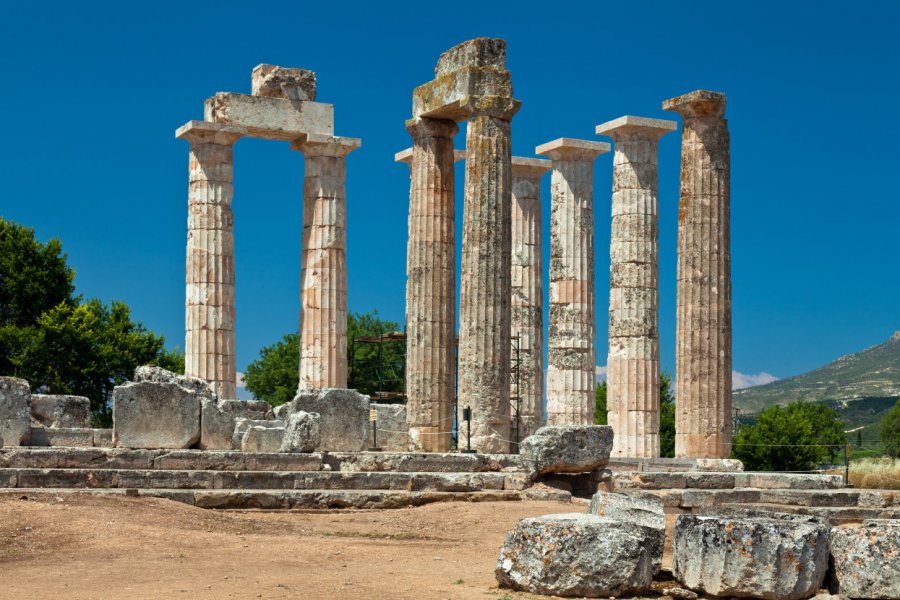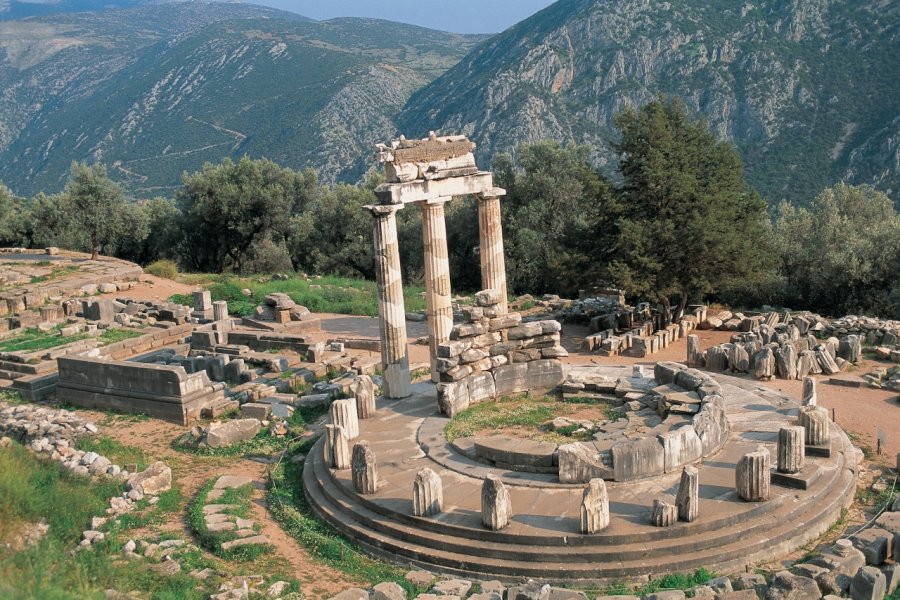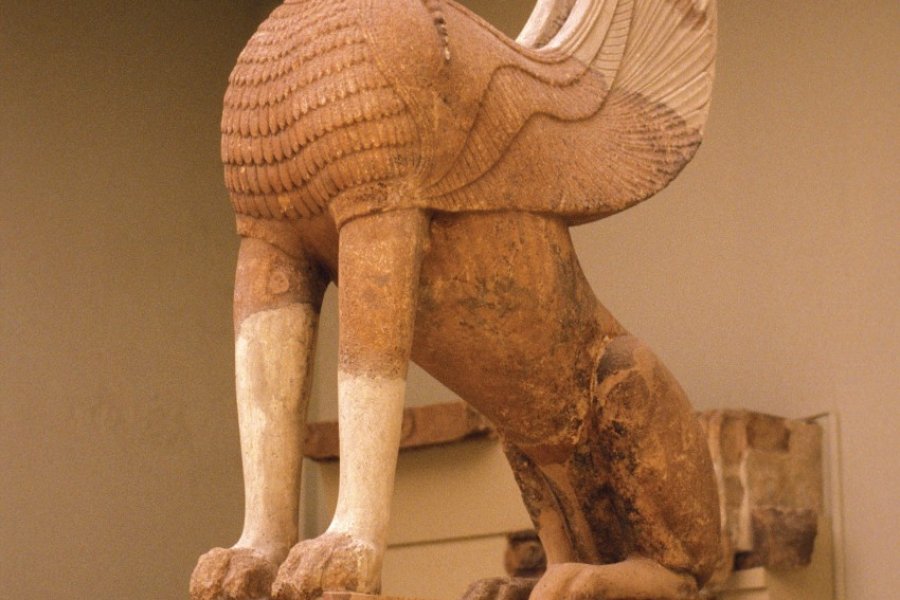Why go to Central Greece? The 10 good reasons to go Central Greece

His family and religious holidays
In Greece, any occasion is good for getting together (and eating well).

Between two continents
A link between Europe and Asia, Greece opens onto the Balkans and Turkey.

Nineteen Unesco sites
They are everywhere, from the Acropolis to the early Christian and Byzantine monuments of Thessaloniki.

Sunshine almost all year round
It is also called the "olive climate" with 3,000 hours of sunshine per year.

A mosaic of landscapes
Of course there is the beach, but the mountains cover 80% of the territory!

Open air mythology
Who doesn't know Zeus, Aphrodite and company? They live here, at the summit of Olympus..

A thousand-year-old history
Cradle of Western civilization, Greece has more than one story to tell us.

Hospitality despite the crisis
Despite their economic difficulties, the Greeks have retained this elegance (and their pride).

Mediterranean cuisine
How to resist its mezzes cooked under the patronage of its venerated olive oil?

A never-ending heritage
In 2017, rebetiko was listed as a Unesco intangible cultural heritage site!
What to visit Central Greece?

Interview: My Greece
with Nicolas Jury, author
Nicolas has been traveling the roads of Greece and the Balkans for fifteen years for the Petit Futé. Former journalist and press correspondent in Athens, he decided five years ago to settle in Thessaloniki, Greece, to continue exploring the country and the region. He loves the good restaurants of Athens as much as the villages of Thrace, the ancient sites as much as its Byzantine heritage. Let yourself be carried away!
See the video of the interviewGood to know to visit Central Greece
 Timetable
Timetable
Normal opening hours. National museums and archaeological sites are generally open every day except Tuesday, from 8.30am to 3.30pm. In high season, opening times often extend to 6, 7 or 8 pm. Some major sites and museums have special opening hours. For example, the site and museum of the Acropolis in Athens, the site and museum of Mycenae, the Archaeological Museum of Thessalonica or the site of the sanctuary of Epidaurus are open every day all year round (with variable opening hours depending on the season). Other sites are open on Tuesdays in high season, such as the archaeological site of Dion and ancient Nemea. Large private museums and small local museums often have different opening hours: some are open every day, others only at weekends or during the week, some are closed on Sundays or Mondays, etc. In all cases, we'll give you the opening times for each establishment.
Closing times. National museums and archaeological sites are closed on the following dates: January1, March 25, Orthodox Easter Sunday (April 20, 2025, April 12, 2026, May 2, 2027...), May1 and December 25-26. Please note that some sites may be closed without notice due to special weather conditions. This was the case for the Acropolis site in Athens, which was closed several times during the summer of 2024 due to very hot weather.
Churches and monasteries. Opening times vary widely. Some small places of worship are only open for a few days on certain religious holidays. But the most beautiful churches and prestigious monasteries are open to visitors most of the year, with clearly indicated opening times. Most churches are open during the day. Some male monasteries are closed to women.
 To be booked
To be booked
Online tickets. The Hellenic Organization for the Development of Cultural Resources (Hellenic Heritage) operates the official hhticket.gr to book and buy tickets online for 23 national museums and archaeological sites: the Acropolis of Athens, the National Archaeological Museum (Athens), the Museum of Byzantine Culture (Thessalonica), the archaeological site of Knossos (Crete), the archaeological site and museum of Delphi (Central Greece), the sites and museums of Vergina (Macedonia), the archaeological site of Akrotiri (Santorini)... This is an interesting way of organizing your visits, but the time slots offered are limited. Note that several unofficial private sites also offer online tickets to the Athens Acropolis at a premium price.
Visits on request. Some archaeological sites or small museums are only open on request. For each site where this is the case, we'll tell you what to do.
 Budget & Tips
Budget & Tips
New rates in 2025. The Greek Ministry of Culture is due to introduce new rates for 350 national museums and archaeological sites from April 2025. As this guide was being finalized, the locations concerned and the new prices had not yet been announced. Reduced winter rates are set to disappear. In some cases, combined tickets such as those for archaeological sites and museums will also be abolished. And there are fears of sharp price rises at the most visited sites. In the case of the Athens Acropolis, for example, the ticket price is set to rise to €30 all year round for the Acropolis alone, compared with the current €20 (and €10 in winter): not only will the price remain the same all year round, but the coupled ticket with the other Athenian archaeological sites (Ancient Agora, Roman Agora, Keramikos Cemetery, Hadrian's Gate...) is also set to disappear.
Free admission. Admission to national museums and archaeological sites is free all year round (on presentation of one or more supporting documents) for various categories of foreign visitors: EU nationals under 25, students from EU countries, EU teachers accompanying a school group, disabled people from all countries (and an accompanying person in the case of a disability of 67% or more), children under 5 from all countries, people with refugee status and journalists from all countries. In addition, admission is free for all visitors on the following days: March 6 (Melina Mercouri Memorial Day), April 18 (International Monuments Day), May 18 (International Museum Day), the last weekend in September (European Cultural Heritage Days), October 28 (National "No" Day) and the first Sunday of the month between November and March.
Churches and monasteries. Most places of worship are open to the public. Some, however, are classified as historical monuments and/or have been converted into museums. There are six monasteries in Meteora (Thessaly), all of which charge a fee but are open to all, and twenty monasteries on Mount Athos (Macedonia), all of which are free but only accessible to men with a pass.
 Main events
Main events
It's possible to enjoy the country's great sites during special events. The most prestigious is the Athens-Epidaurus Festival (aefestival.gr), with plays and concerts between June and August at several sites, including the ancient theater of Epidaurus and the Odeon of Herod Atticus, at the foot of the Acropolis. The equivalent event in Northern Greece is the Festival of Olympus (festivalolympou.gr/en), held in July and August at the archaeological site of Dion and the castle of Platamonas. The Ministry of Culture also organizes night tours and cultural events during the August full moon (August 9, 2025, August 28, 2026, August 17, 2027...) at major sites such as the Acropolis in Athens and the Rotunda in Thessalonica.
 Guided tours
Guided tours
Qualified guides. A guided tour of Greece's major monuments and museums is a real plus. However, you should be aware that in the case of national museums, archaeological sites and certain listed monuments (churches, monasteries...), only guides with a diploma from the Greek National School of Lecturing Guides are authorized to lead guided tours. You can find these guides directly, without having to go through a tourist agency and pay additional fees.
Two official websites. Qualified guides are grouped together in the Association of Lecturing Guides of Greece and the Association of Guides of Thessalonica and Northern Greece. The website tourist-guides.gr/fr lists some 1,800 certified guides (over 210 of whom are French-speaking), most of whom are based in Athens and Attica. The touristguides-ngreece.gr site lists around 110 qualified guides (including around 20 French-speaking ones), most of whom are based in Thessalonica and Macedonia. On both sites, you'll find direct contact details for each guide (e-mail and telephone number). For a 2h30 guided tour for families or small groups, prices generally start at €150.
Other French-speaking guides. French-speaking guides who are not graduates of the École nationale de guides conférenciers, but who are highly competent, also organize guided tours outside national museums and monuments. On the welink.fr website, which brings together French-speaking guides from all over the world, you'll find contact details for Secrets d'Athènes (tours of the capital and the rest of the country with Céline, an archaeologist) and Emberia (embiria.eu, personalized tours of Athens with Clément, who also offers audio guides on smartphones). Count here between €30 and €70/person for a guided tour.
Free guided tours. Agencies such as Athens Free Tours (athens-free-tour.com) and Thessaloniki Free Walking Tours (thessalonikifreewalkingtours.com) organize free daily guided tours of Athens and Thessaloniki in English. The tours are generally of good quality and free of pitfalls. But it's best to make a donation to the guide (around €10/person). These agencies organize these free tours to promote themselves, and also offer paying tours, but without any obligation.
 Smokers
Smokers
Smoking is of course prohibited in museums, churches, etc. Because of the risk of fire, smoking is also prohibited in some archaeological sites. However, many sites have a café where you can smoke on the outdoor terrace.
 Tourist traps
Tourist traps
There's little risk of being cheated. In Greece, cultural and historical sites receive special attention. And most private museums are also of high quality. Guided tours are highly regulated: very few "fake guides" dare to offer their services at the entrance to national museums and archaeological sites: uncertified guides without accreditation are liable to heavy fines.
 What's very local
What's very local
In places of worship, proper dress is required. It also goes without saying that you must be respectful: don't touch anything, don't make any noise, respect areas that are off-limits to visitors... Some monasteries are very fussy about dress and only allow visitors to wear long dresses, for example. In this case, rudimentary dresses to slip over pants or skirts are usually offered at the entrance. In addition to the Athos monasteries, some other male Orthodox Christian complexes also prohibit women from visiting. Finally, in the very few mosques open to worship (mainly in Thrace), shoes must be removed on entry and women must cover their heads.
